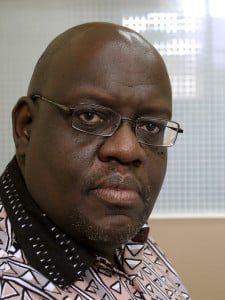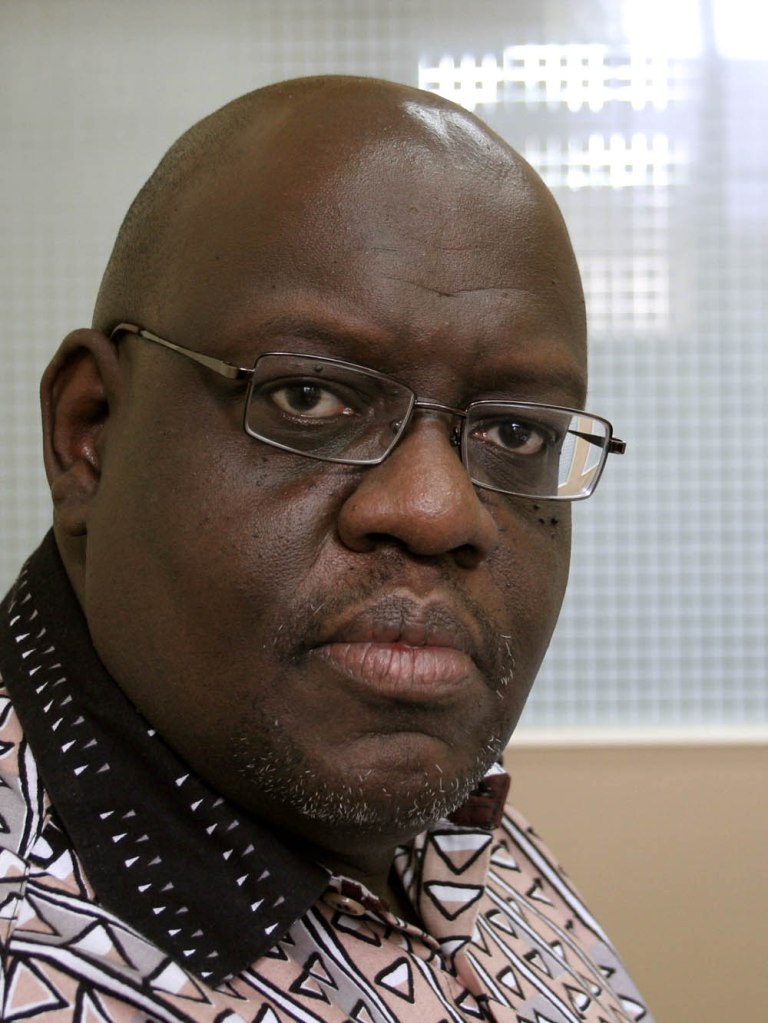
John Githongo, a Kenyan activist and journalist who exposed one of Kenya’s largest corruption scandals under the presidency of Mwai Kibaki, is this year’s Mimi and Peter E. Haas Distinguished Visitor and a visiting scholar at the Center of Democracy, Development and the Rule of the Law (CDDRL).
The Daily sat down with Githongo to discuss his interests in journalism, identity-based politics and the resilience of government corruption.
The Stanford Daily (TSD): As a student, you studied economics and philosophy. What sparked your interest in journalism?
John Githongo (JG): I have an insatiable curiosity about the human condition. And so everywhere I go, I’m inquisitive. The other day I found marshals at the train crossings in an effort to stop potential suicides. [As a newcomer to Palo Alto] I said, this is strange for Palo Alto, the richest place around. What are the problems that people have here on a Sunday afternoon? It’s that curiosity – asking, “Why is that? What’s happening, and what are these people thinking and feeling?”
TSD: What attracted you to the Haas Center’s Distinguished Visitor Program?
JG: We started talking about my becoming a visitor about three years ago, but things at home, work and other issues kept me very, very busy. I thought that Stanford, and the Haas Center and the [CDDRL] in particular, was the best environment to stand back from all the work I had to do and look at it with a bit of distance. I kept on looking for a perfect time, and last year, I finally wrote to [the Haas Center] and said, “I don’t think there’s going to be a perfect time. Let’s just do it.”
Stanford’s a unique environment in terms of the people who come through here. It’s a tremendous learning experience for me, [considering] the range of interlocutors possible – from students to faculty to other visitors. They’re very effective for my challenges of putting out ideas and developing frameworks for analyzing government issues.
TSD: Speaking of learning experiences, what are the personal goals you hope to accomplish as a Distinguished Visitor?
JG: I’m finishing a book I’ve been working on for some time. There’s also been a number of issues on development and security that I’ve been studying, but I haven’t had the chance to just sit back and think through and discuss them with people who spend their time doing nothing else but that. [I’d like to not only] synthesize ideas, but write about them and make them into a product that can be consumed – whether that’s papers, articles, books or pictures. I want to make them consumable.
TSD: What is your book about?
JG: Corruption. I have an increasing focus on the resilience of identity politics. Despite increasing democratization, identity politics – whether you’re talking about a new nationalism across Europe, ethnicities across Africa or the Sunnis and Shiites within the Muslim community – now rules. It’s changing the way the world organizes its politics. Identity politics is something that, with democratization and secularization, you think would become less relevant, but that’s not happening. When I look around, I see that this world is richer than any other time in human history, but identity politics is still very intense. A serious question can be asked about why identity politics is so resilient, and what are its implications for democracy and organizing the community of nations.
Identity politics makes it more difficult to deal with corruption. It’s based on kinship, a shared religion, etcetera, so it always has this sense of “us” versus “the other.” It makes corruption more likely and therefore undermines the basic institutions of the state and the law. It undermines the capacity of the state and its ability to be nonpartisan in its engagement in a variety of issues. When I started exploring this, it was very much in the context of my own country [Kenya], but it’s a global problem.
TSD: You’re the CEO of Inuka Kenya Ni Sisi Ltd., a Kenya-based non-state organization that works to engage civilians in increasing their roles in everyday civic matters. What is your ultimate goal for the organization?
JG: We have always promoted “hashima,” diversity and “ni sisi.” “Hashima” is dignity: People need to have a sense of themselves that they are at peace with. It doesn’t have to do with how rich or poor you are but that you feel comfortable with your place in life and feel that you have equal access to economic opportunities and justice. We encourage a framework of understanding that allows people to accept diversity and to enjoy and appreciate it as a strength, not a weakness. Everything we do hammers at that. “Ni sisi” means “it is us”: we, ordinary civilians, are the ones with the answers and solutions to the problems that we face.
One of our projects involves partnering with a girls’ school in Kenya. In the four years that we’ve worked with them, it has become one of the top schools in that part of the country. The school doesn’t have any rules. It runs on 10 values that the girls define by themselves every Saturday morning. You live the values that you create; your values come to life. If we do can do that with students at a school, then what can we do at the national level when we work with political parties and political activists? So it is a multi-pronged, multifaceted engagement.
This transcription has been condensed and edited.
Contact Grace Chao at gracewc ‘at’ stanford.edu.
